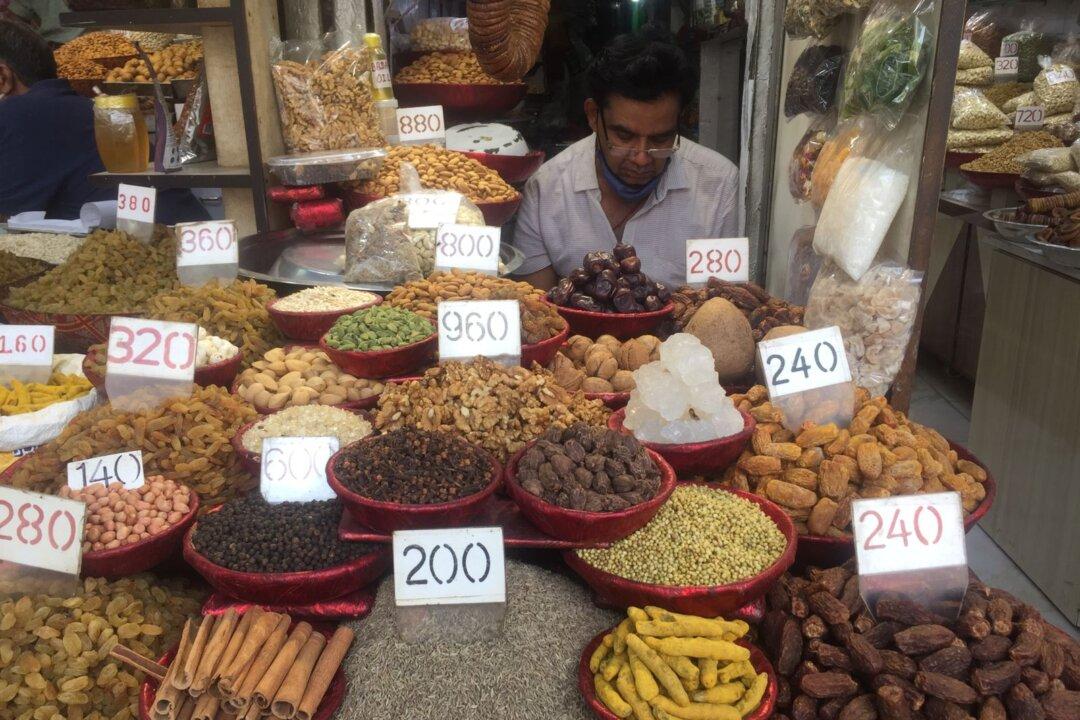NEW DELHI—There is nostalgia in every nook and corner of old Delhi’s Khari Bouli dry fruit market that is the biggest wholesale outlet of Afghan dry fruits in India.
Being the capital from where the Mughals ruled pre-colonial India, the market has centuries-old relations with Afghanistan and dry fruits have particularly ruled the trade.





